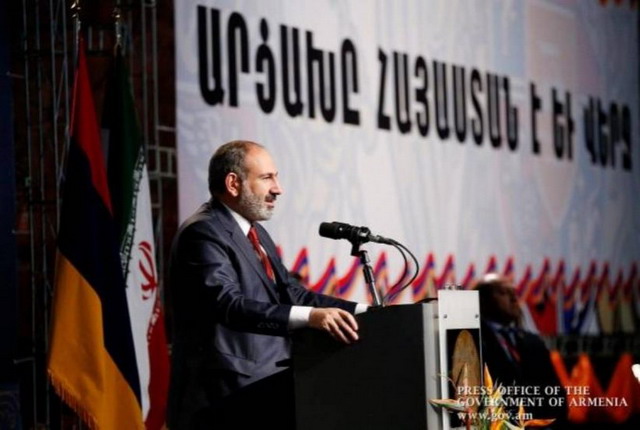The Putin-Pashinyan-Aliyev trilateral meeting will take place in Sochi tomorrow, and the opposition circles are afraid that during the meeting some document will be signed, by which a) Artsakh will be recognized as a part of Azerbaijan in one way or another, and b) a corridor will be provided to Azerbaijan through the Syunik region. It is very probable that such a statement will be signed, but I suppose it will be done with some “blurred” formulations.
I can not say anything optimistic or reassuring about the consequences of such a statement. Perhaps the only thing is that if such a statement is made, say, in a few months, the situation may get worse. By the way, about a week ago it was said that the meeting of the leaders of Armenia and Azerbaijan will take place in Brussels. Taking into account the peculiarities of the Russian policy, we can say with confidence. If that meeting took place “without Sochi,” it would definitely have worse consequences.
What was more remarkable for me than Pashinyan’s online press conference yesterday was that he had already (in fact, removed from the verbal veil) already accepted that Artsakh should be part of Azerbaijan, and that it had been clear since 1991. I think political scientists and experts in international law will confirm that this assertion is not very well-founded. I do not want to touch upon the question of how much this approach contradicts the strong slogan “Artsakh is Armenia and that’s it,” how meaningless the statements of “returning Artsakh to the negotiating table” are, as well as the “profound” idea that the solution should satisfy the people of Armenia, Artsakh, and Azerbaijan. The solution sought by the Prime Minister satisfies only the Azerbaijanis, the Turks and, to a lesser extent, the Russian authorities. But if we leave the criticism to the opposition in this direction, they will find harsher words.
And let me just state that Pashinyan is trusted by at least 680,000 citizens. They therefore agree that the 1988-90 Movement was wrong, that the last 30 years of the Third Republic were fruitless, during which thousands of victims and severe deprivations were meaningless. You just have to “have the political will” and “tell the truth” about it.
Read also
Two questions remain. Will the tens of thousands of Armenians still left in Artsakh stay on their land or become refugees? Second, will the Republic of Armenia be able to exist according to the scenario designed for it by the current Prime Minister? I am not sure that the state can survive with this status and such citizens. And you?
Aram Abrahamyan



















































